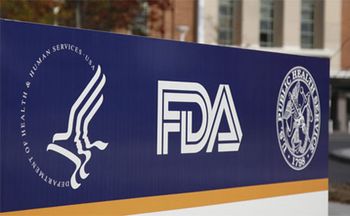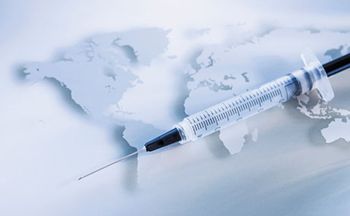
Authorities fear distrust of early preventives and complications for ongoing COVID-19 research.
Jill Wechsler is Pharm Exec's Washington Corespondent

Authorities fear distrust of early preventives and complications for ongoing COVID-19 research.

President-elect Biden has announced initiatives to combat the widening coronavirus pandemic including a 13-member COVID advisory board.

FDA has published a list of critical drugs and medical products for public health emergencies in a bid to reduce reliance on the global pharma supply chain and minimize potential shortages.

This week's much-anticipated meeting of FDA’s vaccine advisory committee will address critical issues related to the testing and approval of vaccines to prevent COVID-19 infection.

Missteps threaten agency’s independence as vaccines seek finish line.

FDA has published updated Emergency Use Authorization (EUA) requirements for new coronavirus preventives.

Experts fear confusion over allocation process, cold-chain requirements, IT systems.

Even advocates of U.S. drug pricing reform recognize that President Trump's revised initiative to reduce the price of prescription drugs is unlikely to save money for consumers or the government.

With all eyes on efforts to research and test potential vaccines and therapies to combat the coronavirus pandemic, fears about overly accelerated development programs has heightened demands for wider access to information on study protocols, statistical analysis plans, and early results.

President Trump has taken on the pharma industry in a surprise move making significant cuts in reimbursement for drugs covered by Medicare.

Tasked with setting up framework for essential medicine program.

Industry leaders insist they will maintain high standards for clinical trials and regulatory submissions for new vaccines and therapeutics to combat COVID-19.

FDA to resume “prioritized domestic inspections” for certain regulated products put on hold by COVID-19.

White House initiative to encourage U.S. production of essential medicines calls on FDA to set program parameters for implement main aspects.

As biopharma companies and research institutes advance the development of promising vaccines against COVID-19, policy makers and health officials have intensified deliberations on strategies for ensuring fair and equitable distribution of anticipated preventives.

Patient advocates, research experts, and industry are calling for more user fee revenues to support CBER programs to advance innovative therapies.

FDA's plans to resume inspections of some US regulated facilities this week are not clear on which sites will be visited and what alternative oversight strategies will apply where on-site inspections are difficult.

The FDA has released a new guidance which outlines recommendations for quality and safety in potential COVID vaccines as they move through trials.

Stresses the need for fair pricing of therapies, while ensuring access.

The need for treatments to combat the spread of COVID-19 is promoting greater cooperation among drug regulatory authorities around the world, with FDA officials communicating more frequently with their counterparts in Europe, Canada, Japan and other nations through established programs and agreements.

After revoking its Emergency Use Authorization for medicines thought to treat COVID=19, the FDA is looking to regain credibility.

Will efforts to limit all returns on investment drive biopharma companies away from developing much-needed interventions for COVID-19.

As authorizations skyrocket, review standards face questions.

While scientists are striving to discover and produce safe and effective vaccines to halt the coronovirus outbreak, anti-vacciners are revving up misinformation campaigns.

The White House looks to bring in credible experts for its Operation Warp Speed initiative to advance therapies and vaccines to combat the coronavirus pandemic.

The Trump administration has awarded a hefty contract to a new pharmaceutical manufacturing consortium to produce in the U.S. all components of certain critical medicines needed to combat COVID-19.

Biopharma companies have been working overtime to supply billions of doses of any safe and effective preventive. But the tight timeframe means they can't wait for final clinical test results to begin preparing large-scale manufacturing operations and to address critical supply chain issues.

Proposals around the globe seek to ensure access to any promising treatments.

Under pressure amid the COVID-19 panic, FDA has issued more than 100 Emergency Use Authorizations since early February, compared to less than 75 over the ten previous years.

The next version of the Cures Act will include provisions to advance research related to the COVID-19 crisis, writes Jill Wechsler.